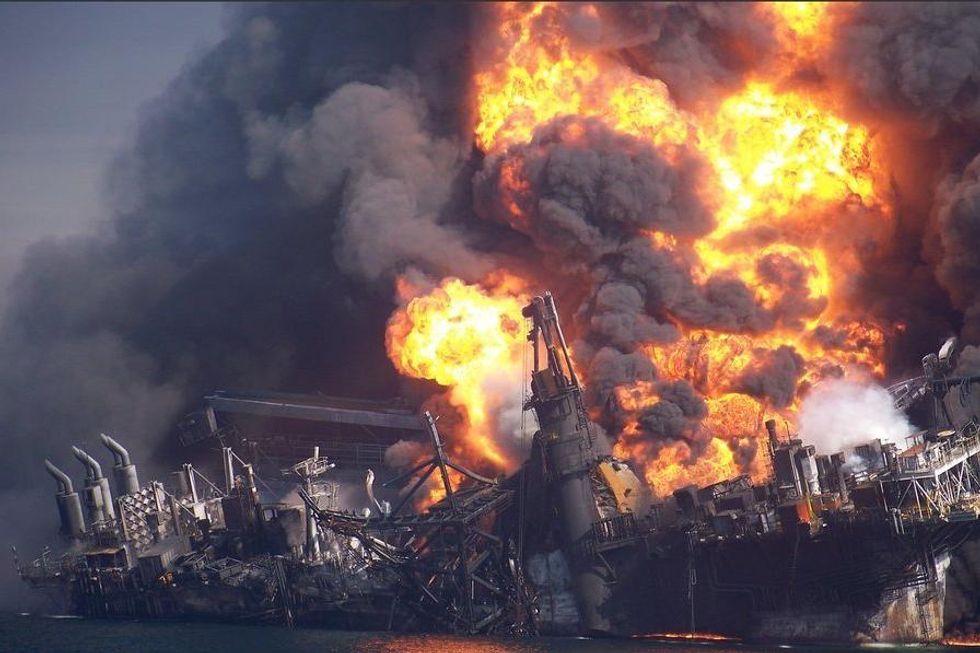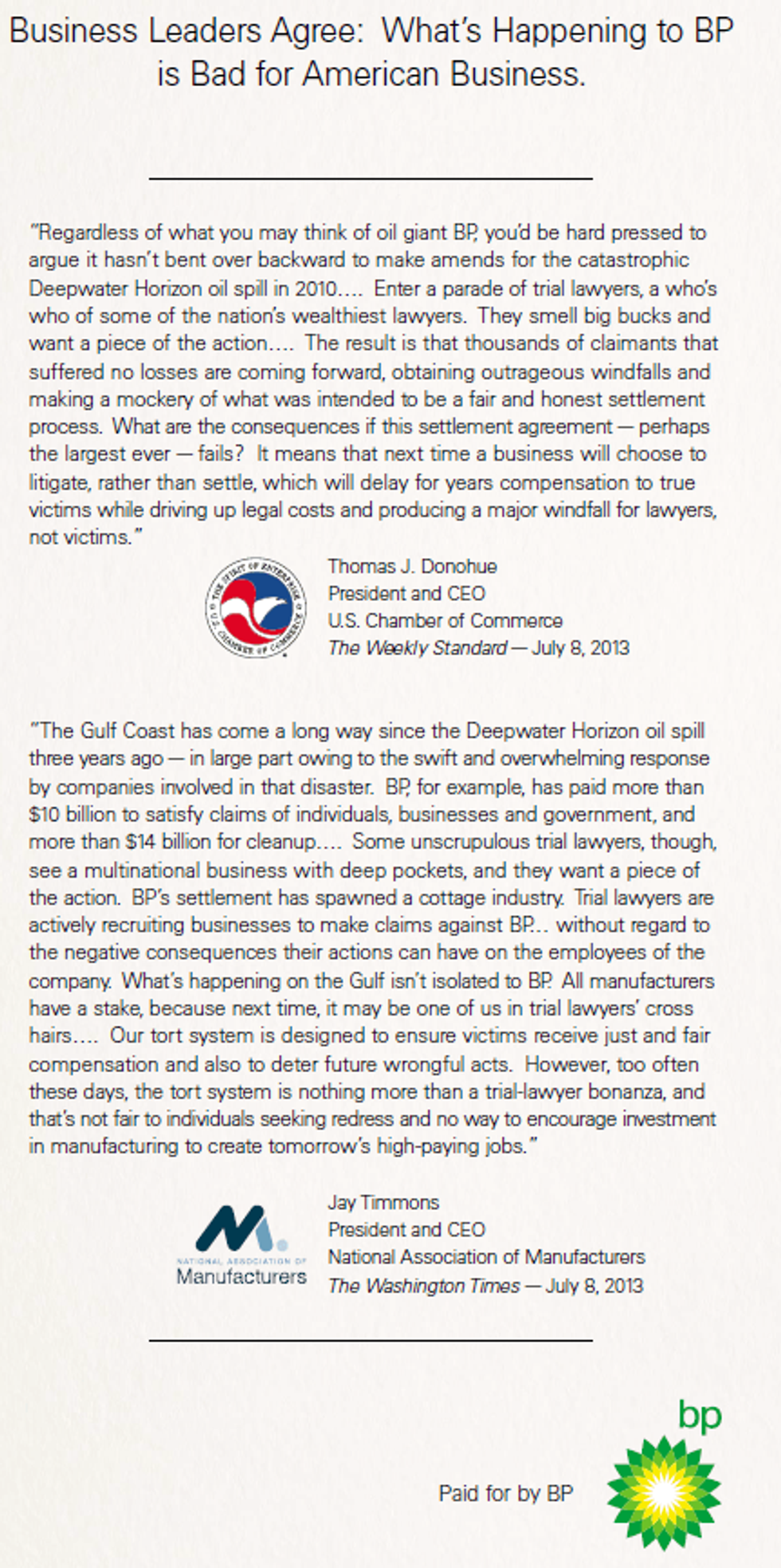A full-page ad placed prominently in both the
New York Times and
Wall Street Journal on Thursday--paid for by BP and painting "American businesses" as the victim in the aftermath of the Deepwater Horizon oil disaster--is just a bit too much for some.
Among those most angered by the BP-sponsored ad? The actual victims of the region's worst ever environmental disaster.
The ad, featuring comments from both the US Chamber of Commerce and the National Association of Manufacturers, criticizes the process by which local residents, small-business owners, and impacted communities have been compensated. Saying that BP "had bent over backwards to make amends for the catastrophe" the letter from the Chamber's CEO Thomas Donahue says that in the future, businesses will be smart to "litigate" rather than "settle" with communities following industrial disasters.
"Outrageous," said Aaron Viles, deputy director of the Gulf Restoration Network, which works to support the communities and Gulf ecosystems so devastated by the 2010 disaster that gushed an estimated 5 million barrels of crude oil into the ocean.
According to Viles, making big business out to be the victim is absurd. "BP and their team of lawyers signed off on this deal, and now they are crying foul? The truth of the matter is that BP's historic release of oil and application of toxic dispersant made the Gulf and our communities the victims," he said. "BP needs to follow through on their commitment to our coast."
Here's the ad:
Describing the ad--a clear example of big oil rallying its industry friends to provide it public relations backing--the Wall Street Journal's Tom Gara calls it
... one part of a multi-front effort by the oil giant to push back against the mountain of compensation claims it is facing from Gulf Coast residents and businesses over the 2010 Deepwater Horizon oil spill. On one hand, it has fought through the courts, challenging fraudulent claims and appealing against the process that awards compensation to victims.
By why now? And why bring in the Chamber and the NAM to speak on their behalf? According to Gara:
In short, [BP] is realizing the payouts it will be forced to make over the 2010 spill will be gigantic: Back in April, it said it expects total payouts to be "significantly higher" than the $8.2 billion it had estimated.
Part of the problem is that in the wake of the spill, it was so desperate to calm the firestorm of criticism -- recall at the time, some believed the crisis could be the end of BP as we knew it -- that it got itself into a compensation process that is turning out to be even more generous with payouts than it expected.
But Viles that's not how the real victims in the region--the people and the wildlife so devastating by the oil's destructive impact--see it.
"BP's oil is still here, and so it's only appropriate that they are still signing checks," he said. "This is a part of a clear pattern of BP doing everything possible to win the PR battle and convince the world that they are making things right. They aren't."
__________________________________


